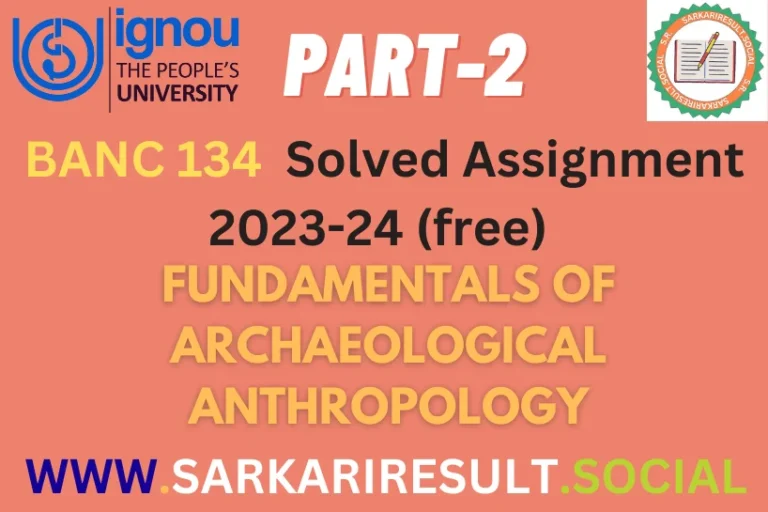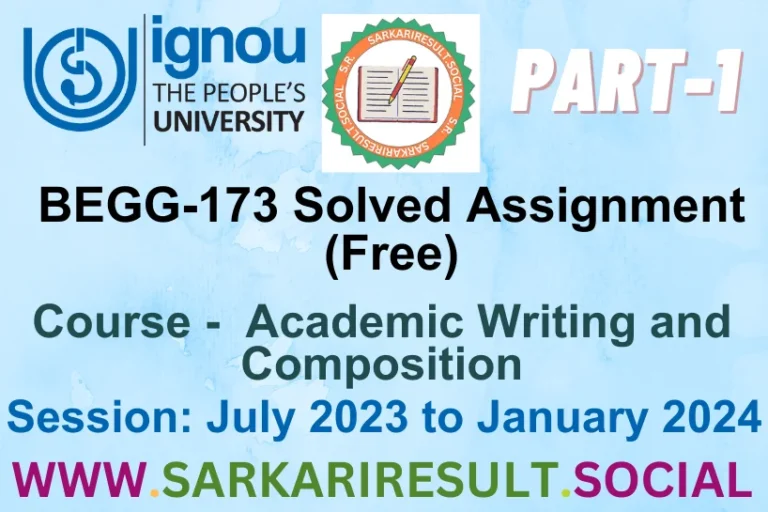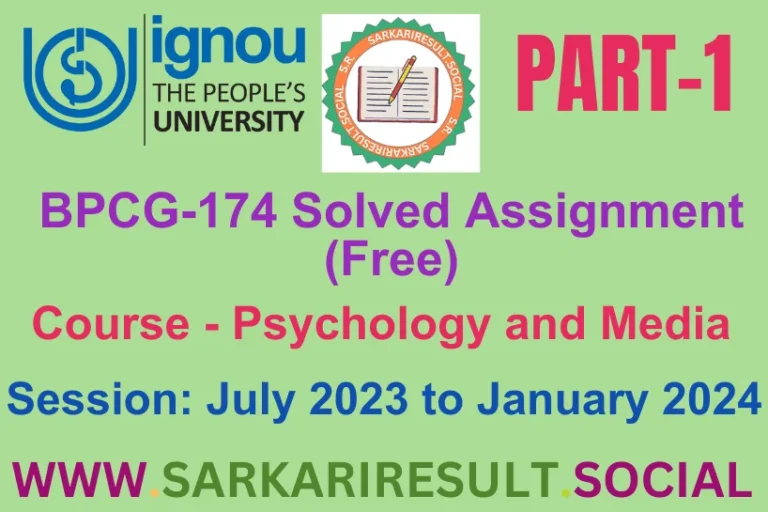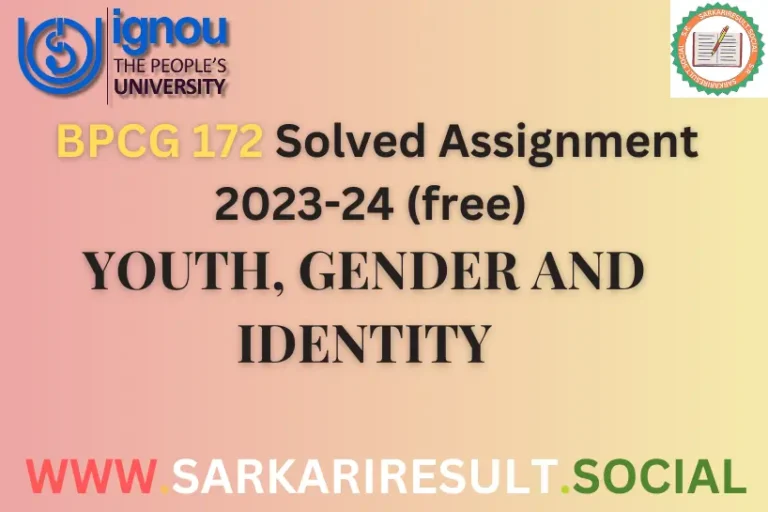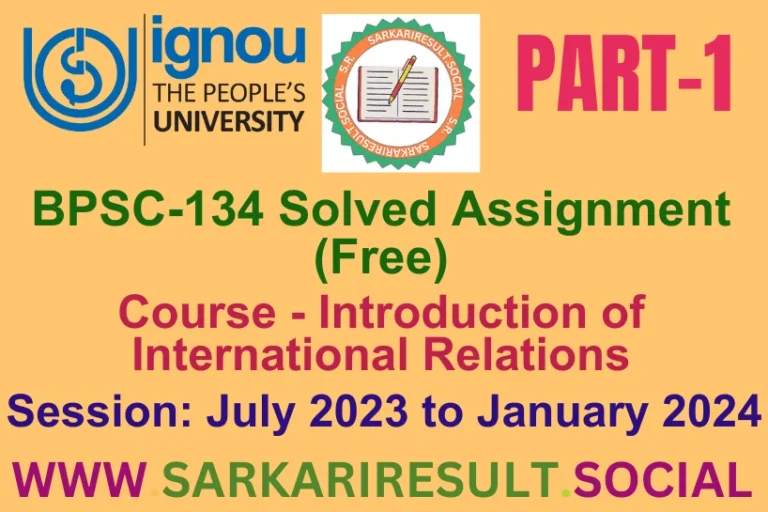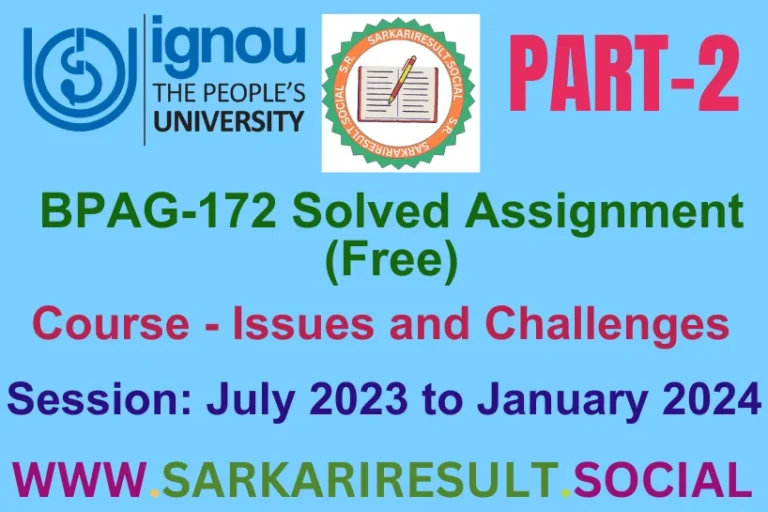BPSC 132 SOLVED IGNOU ASSIGNMENT FREE PART 3
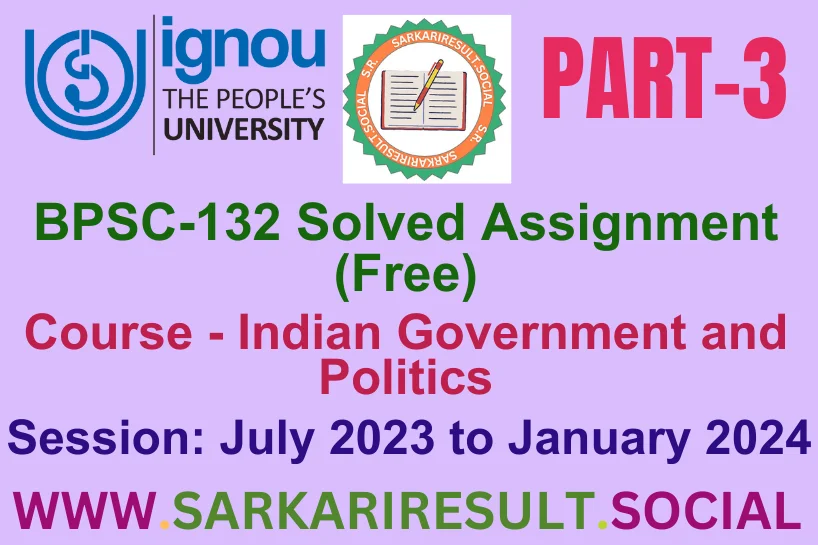
Welcome to the BPSC 132 SOLVED IGNOU ASSIGNMENT FREE PART 3 TMA. Assignment – III simplifies your approach with concise answers to five questions. In just 100 words per response, explain the dominant party system, define the meaning of Secularism and Secularisation, differentiate between a tribe and a caste, provide a brief note on the importance of rights under Articles 20 and 21, and summarize the Emergency provisions in the Indian Constitution. Our succinct solutions empower you to navigate these diverse topics effortlessly, ensuring a seamless completion of your assignments while gaining valuable insights into the intricacies of Indian government and politics.
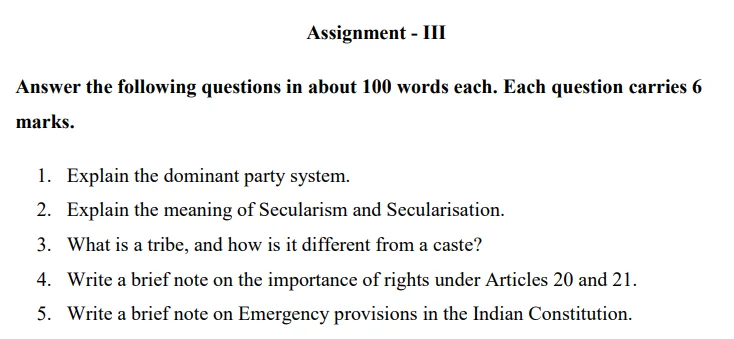
Answer the following questions in about 100 words each. Each question carries 6 marks.
Q.1 Explain the dominant party system.
Ans. The dominant party system is a political scenario where one party consistently holds a significant advantage over other political parties, often winning consecutive elections and maintaining long-term dominance. While multiple parties may exist, one party’s continuous electoral success leads to its sustained control of government institutions.
This system is characterized by the dominance of a single party, which influences policy making and governance. The dominant party’s continued electoral victories may be attributed to factors such as a strong organizational structure, popular support, or political strategies that effectively marginalize opposition parties.
Q.2 Explain the meaning of Secularism and Secularisation.
Ans. Secularism refers to the principle of separating religion from the affairs of the state, ensuring that religious institutions do not dominate political, legal, or social matters. It advocates for a neutral and inclusive approach, treating all religions equally.
Secularization, on the other hand, is a broader societal process involving the declining influence and significance of religion in various aspects of life. It entails the reduced role of religious institutions and beliefs in shaping public policies, cultural norms, and individual behavior as societies modernize and prioritize diverse perspectives.
Q.3 What is a tribe, and how is it different from a caste?
Ans. A tribe is a social group bound by kinship, common ancestry, and cultural ties, often residing in a specific geographical area. Tribes often share a common language, traditions, and customs.
In contrast, a caste is a rigid social hierarchy based on birth, assigning individuals to specific occupational groups. Caste membership is hereditary, and social mobility is traditionally limited. While tribes emphasize kinship and cultural ties, castes are defined by a structured social order with predetermined roles and occupations, making social status largely immutable. Tribes are often more fluid and flexible in comparison to the stratified and fixed nature of the caste system.
Q.4 Write a brief note on the importance of rights under Articles 20 and 21.
Ans. Articles 20 and 21 of the Indian Constitution guarantee crucial fundamental rights. Article 20 protects individuals from double jeopardy, self-incrimination, and retrospective criminal laws.
It safeguards against arbitrary legal actions. Article 21 ensures the right to life and personal liberty, encompassing a broad array of rights, including the right to privacy, dignity, and a pollution-free environment. Both articles form the cornerstone of individual liberties, emphasizing the protection of citizens from unjust legal actions and securing their fundamental rights to life, personal liberty, and fair legal proceedings.
Q.5 Write a brief note on Emergency provisions in the Indian Constitution.
Ans. Emergency provisions in the Indian Constitution, primarily outlined in Articles 352, 356, and 360, empower the government to deal with extraordinary situations. Article 352 allows the proclamation of a national emergency due to war, external aggression, or armed rebellion.
Article 356 permits the President to impose President’s Rule in a state in case of constitutional breakdown. Article 360 deals with financial emergencies. While these provisions offer tools to address critical situations, their misuse can raise concerns about the balance between executive power and individual freedoms.
Also See This: BPSC 132 SOLVED IGNOU ASSIGNMENT FREE PART 1

